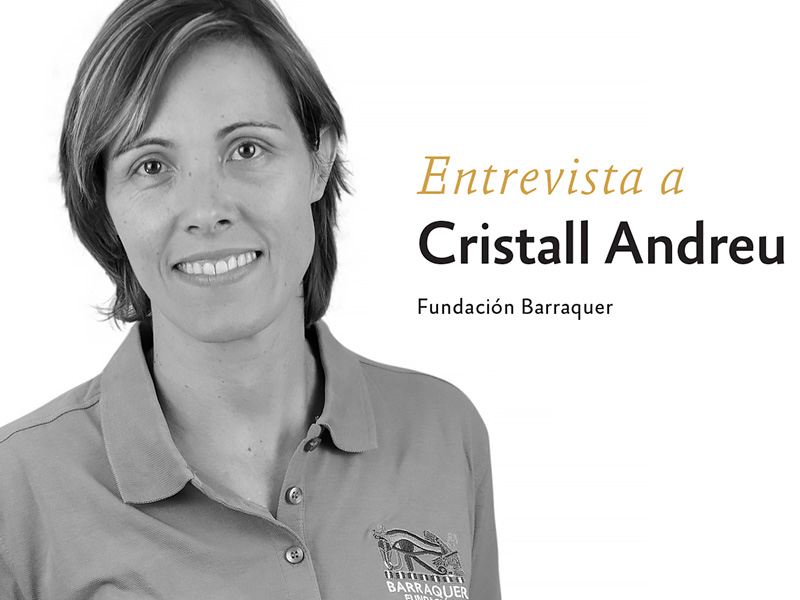Maria Àngels, a patient of the Foundation
02/04/2024
28/07/2017
Behind the many medical expeditions and charity events organised by the Barraquer Foundation lies a team of people who arrange them and ensure they run smoothly. Cristall Andreu, coordinator at the Barraquer Foundation, tells us what it involves and what this responsibility entails.
—Where were you born? How long have you been working with the Barraquer Foundation?
I was born in Andorra and I’ve been living in Barcelona since I came here to study in 2001. I started working for the Barraquer Foundation just 2 years ago.
—Had you ever worked with other foundations or a social service? Did you come from a different background?
I had worked as volunteer on a one-off basis for other organisations, but in terms of my profession I used to work in the Tourism and Secretarial Management sector.
—What are the main roles of a coordinator at a medical foundation?
At the Barraquer Foundation, the organisation can be divided into different parts.
—Have you ever participated in an expedition or social projects abroad? Where?
Yes, I took part in the expedition to Equatorial Guinea with Dr. Samaan from the Barraquer Ophthalmology Centre in 2015. If you want to coordinate and organise expeditions from Barcelona, I think it’s essential to have experienced one first hand. It was an unforgettable experience that helped me to understand many things about running operations which are not so evident “on paper”.
—After organising multiple expeditions for teams from the Barraquer Foundation, when you went on your first expedition how did you feel about the place and the experience compared to the idea you had before?
The idea in my head was actually quite similar to my experience on the expedition, because I’d already organised a number of expeditions and received feedback from the volunteers and the local teams.
Despite that, when you do experience one of these expeditions first hand it’s as if time stops, and for a week you’re there on one specific mission: to help. When you see the massive amount of patients who appear at the doors of our pop-up consultancy room on the first day, the initial feeling is that we won’t manage to see everyone. But we do, we manage it. We see all of them and more!
—How many expeditions does the Foundation carry out each year? What are the destinations?
Over recent years the number of expeditions has increased. We organise 14 or 15 annual missions, the majority to countries on the continent of Africa, some in Asia and recently we’ve added Central and South America to our map of destinations.
—Do you receive many collaboration requests from individual volunteers outside the Barraquer Ophthalmology Centre?
Increasingly more people are contacting us so they can contribute and take part in one of the Foundation’s expeditions. Many people are now realising that you do not have to be a doctor to participate as a volunteer; you just have to want to work hard and always have a smile on your face.
